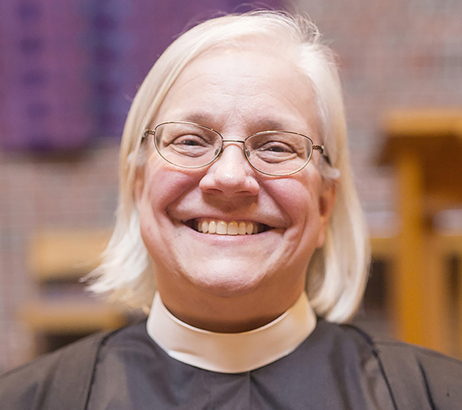Some judge one day to be better than another, while others judge all days to be alike. Let all be fully convinced in their own minds. Those who observe the day, observe it in honor of the Lord. (Romans 14:5-6)
Most of us at Trinity have been working from home since April, popping in to campus only to check mail or pick up something we need from the office. Recently I popped into my own office and found on my desk a note that I had written early in the pandemic while listening to Ohio Governor Mike DeWine’s daily press conference. Governor DeWine said, “We are in extraordinary times, and we are looking for extraordinary solutions.”
Mind you, those words were spoken in early spring – before Ohio’s Stay at Home order, before wearing masks in public became part of our daily lives, before the world-record setting number of infections and deaths from COVID-19 in the U.S. Already then, the times seemed extraordinary. How much more is that the case now, over four months later. We are living in a time of prolonged uncertainty and risk.
I am struck by the juxtaposition of Governor DeWine’s language of “extraordinary times” and the liturgical concept of “ordinary time.” In the winter, the church year is structured by the flow from Advent to Christmas to Epiphany. In the spring, the church year is structured by the flow from Lent to Easter to Pentecost. “Ordinary time” refers to the rest of the year: a handful of weeks between Epiphany and the beginning of Lent and then the long span of weeks through the summer and fall before the church year begins again with Advent.
Many of us long for a return to “normal” – without quite knowing what a “new normal” might be like.
I think God’s people have been here before! The Hebrews enslaved in Egypt, Israel in exile in Babylon, the Jewish people under Roman occupation in the first century – God’s people have often known times of prolonged uncertainty and risk. God’s people have often lived in extraordinary circumstances with extraordinary challenges and yet have lived faithfully from day to day through the long span of weeks, and years, and generations that make up our “ordinary” lives.
While these days feel anything but ordinary, there is comfort in knowing that our extraordinary God is with us, through ordinary and extraordinary times alike. All of our days and all of our lives are held securely in God’s loving hands. Thanks be to God.
The Rev. Kathryn A. Kleinhans, Ph.D.
Dean
